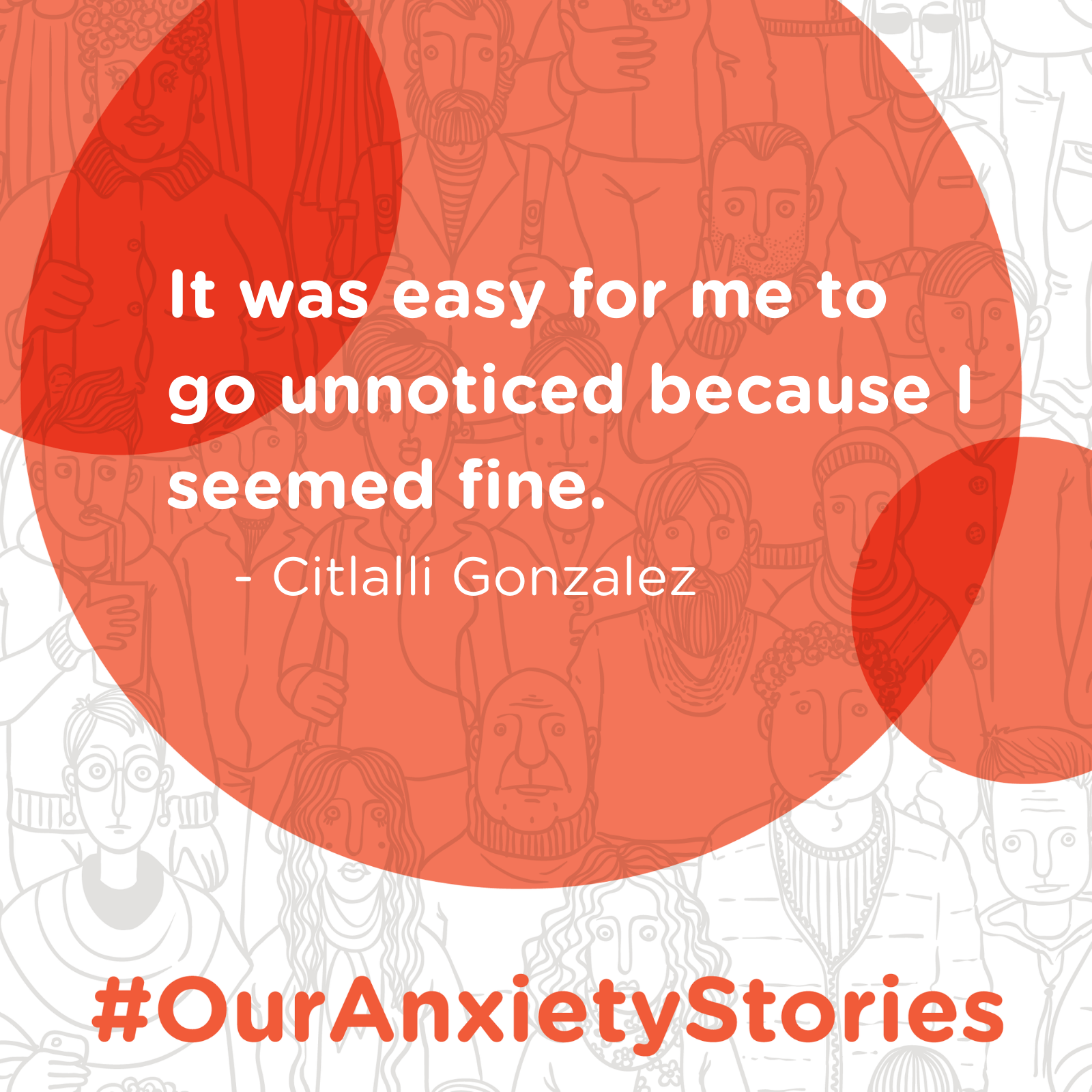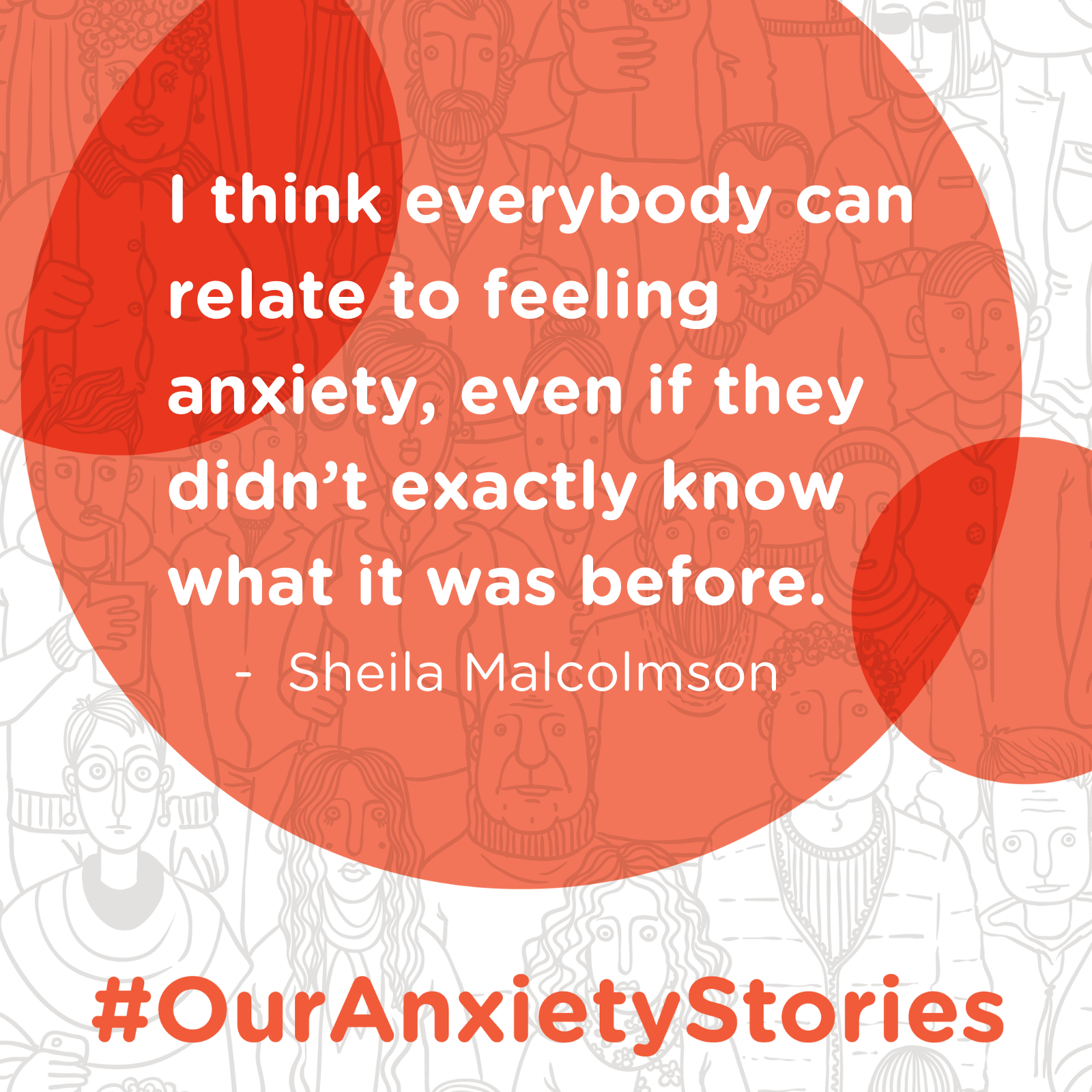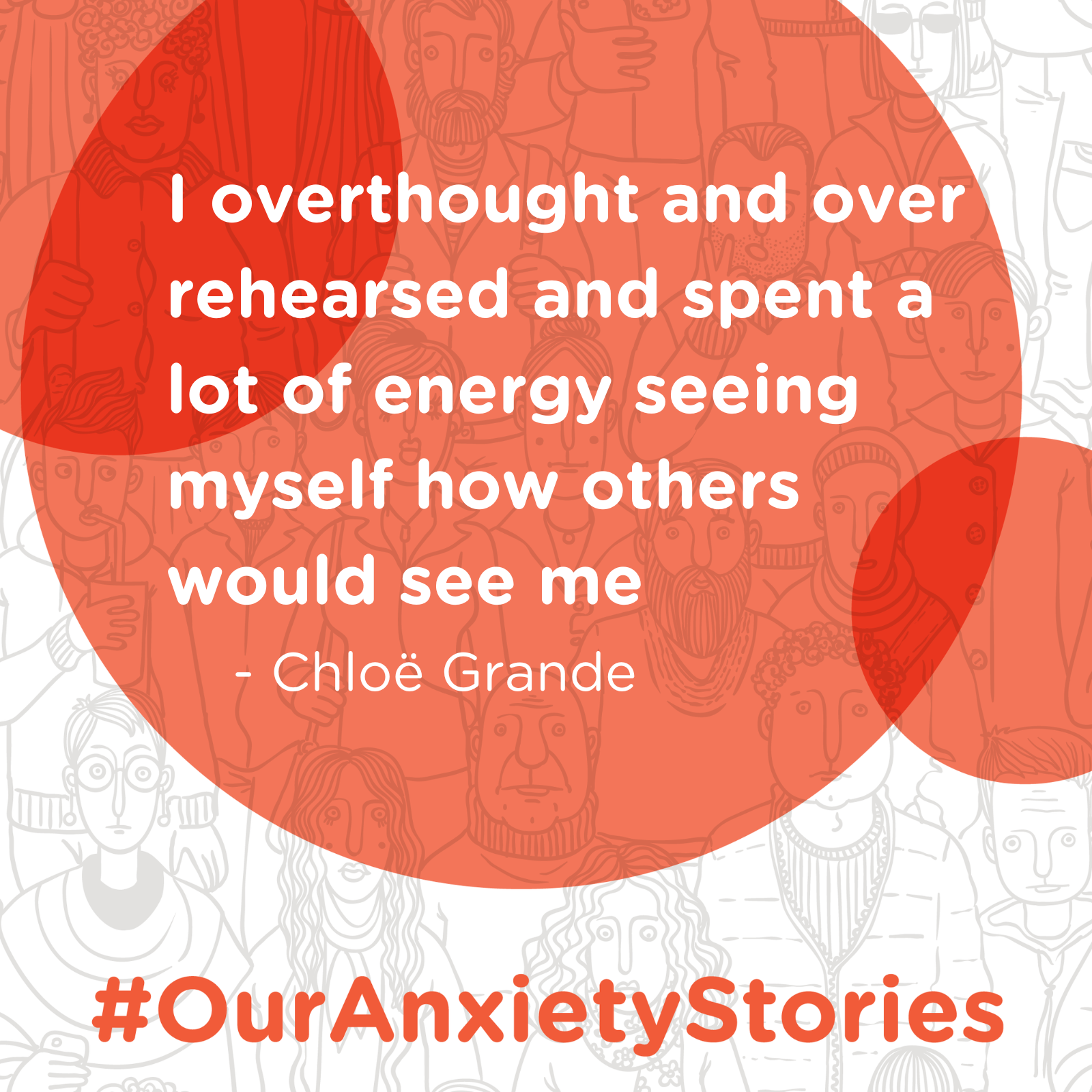Episode Transcript
Speaker 1 00:08 You are listening to our anxiety stories, the anxiety Canada podcast with John Bateman, checkout anxiety, canada.com for more totally free anxiety resources, including our app Mindshift at CBT.
Speaker 0 00:23 Yeah,
Speaker 2 00:25 I've been here for the whole event. You've heard, you've heard a lot. A lot of the people of stat said you, you've heard a lot of the stories. Now it's your turn. I love Joey. I'm ready. You ready? You tell me your guests anxiety story while it's like Beth and better than good. But for real it's like, it's,
Speaker 3 00:42 it's a, it's really been, my whole life has been, um, a lot of anxiety. Yeah. Like ever since I was a kid, ever since I was a kid, like, um, I just remember not wanting to go to school. Like I never would. Uh, I'd always have stomach aches before going to school and like, I developed this good. Yeah.
Speaker 2 01:05 Yeah. Well his levels are looking good. Sorry. We're just making sure we can hear you.
Speaker 3 01:09 Cool. Yeah. Okay. Uh, but yeah, like, uh, ever since I was in school it was just a lot of hesitation to go. I remember avoiding, like I would just keep lying to my parents saying like, I don't want to go, I don't want to go. And I just didn't know why. And it seemed like other kids all easily could go to school and they were having fun. Yeah. And there was me literally every day was like, I, it just feels like the end of the world every day. Interesting. And, um, I would have all these stomach cakes and like, if there was that assignment, I was like, no. But at the same time it was really weird because I developed a habit of being a really high achiever.
Speaker 2 01:49 That's, that's an ongoing kind of,
Speaker 3 01:51 yes. Sorry, we heard heard. Yeah. Um, and so like, and I, looking back, it's so easy to see, but that was like such a defense mechanism for me to just keep achieving and being perfect so that no one could see that I was actually super not okay inside. Yeah. Yeah. Um, but yeah, like, uh, but like if anything, it was bad that I actually continue to succeed and succeed. Yeah. Even through high school and university doing engineering. Yeah. And like, like I almost wish that I had failed earlier and showed myself that I was brave enough to fail earlier. Um, because uh, yeah, I was just so good at keeping the face on, telling everything was good and I'm good at doing so many things. Yeah. When really I was like not okay and yeah. But, uh, so I have come a long way since then, especially since I was a kid, but especially post-graduation after university.
Speaker 3 02:48 It's, it's been truly a journey. Yeah. Which, and it's only been recently that I've, um, that I've, uh, started going to counseling therapy like over the maybe four or five years. Oh yeah. That's, yeah. I don't consider, I mean, you're a young man. Yeah. I'd like to think so. Four or five years, that's, that's a good stretch to be doing that. And that's, yeah. You know, it's important to, I F I find a lot of people, they kind of, what we've talked about is how, you know, you go along, you feel better than you stop, right? Oh yes. Like to be honest though, like it's still comes up often, like often, like I think this has come up in a lot of the previous interviews is that it doesn't go away. Like even though I'm, I'm like, well seasoned and you know, all the CBT concepts, which I'm super passionate about.
Speaker 3 03:34 Yeah. Like there are still moments where I'm like, still not okay. But at the same time it's like I see that overall like on average that I am doing better. Yeah. Um, yeah. So it's like a realization to you where you're just sitting there like <inaudible> you know, I feel better. It's great. Yeah. Yeah, no, absolutely. And like even it's, it's interesting because sometimes I will fill out my low moments for sure, even like, you know, even lately, but it's the kind of thing where I'm like, Oh, but wow. Like I just think back and I think back to everything that I worked on in therapy and in counseling and with psychologists and I'm like, Oh man, I've come so far from from where I was before that definitely, even if I'm not feeling the best at this moment, that there's so much evidence and in CBT there's so much of that looking at evidence and looking at what's realistic and balanced and just seeing that, yeah, like if I look at the fat, I really have been showing improvement even though my mind and my emotions are telling me otherwise. Well, there's, I kind of consider those to be symptoms in the same way that you get a cough with a cold. Exactly. There's symptoms. That doesn't mean that you're going down the rabbit hole again. It just means you're having that symptom and it will go away. That's why I do quite a, I do journaling sometimes where it's like, God, what's important with journaling is, is I, for a while I, I'd have a low point and I'd go through my journal and I'd only journal when I was feeling like crap. Right? Oh my God.
Speaker 3 05:09 Oh my God, this is, I feel like this now. It's never going to end. And what's the use? Oh yeah. It's important to keep journaling when you're feeling good. Yes, yes. You know, so that's a reminder. Absolutely. There's the reminder that you felt like crappy for sure, but then it's good to go to a journal and have that reminder that I felt good. Yes. Previously too. That has been such a useful thing for me to see. Like and I, it's funny because before you could really tell with my journaling cause there aren't links. A really interesting topic for me because I would only write about the things that I wanted to pursue or that I wanted to do or how bad I was feeling or blah blah blah. But you know like just like you said, more and more time like more and more times than entries in my journal lately are bar like, yeah, I'm feeling grateful for X, Y, Zed and you know what? Like this things are not too bad. And
Speaker 2 05:57 written messages in my journal more recently telling my future self, who's more anxious? Remember you feel good right now and you feel good that I have done that too. For that I have to talk to future Joey <inaudible> as well. Oh, I've done that. Yeah. That's like even like you even addressed them as you like you tell me about your association with anxiety Canada. I mean, because I just met you today. I was here all day yesterday and everybody was like, yo, he's got me. Joey's got it. Oh my gosh. I'm Shelley. Get ready for Charlie. Oh God. Joey worked here. I don't, I don't think, do you work here still you. Yeah. But you work in a volunteer. Yeah. What, what did you, what did you do here before and you're still,
Speaker 3 06:36 yeah, so that's a, that's quite a story. So I started out because, uh, my psychologist who is my hero, almost a rubber show. Yeah. We didn't, we did speak to her. Oh, yes. Yes. Um, so yeah, she is my hero. Uh, but she recommended me to anxiety to Canada to be like a speaker and to talk about my story just because like I was finally at a point where I was feeling better about my life and what I was doing. So it was like, okay, yeah, maybe I can open up about advocacy. Yeah, exactly, exactly. Um, and then it, so I started out as like, you know, a volunteer, just doing a few things here and there. And then I guess because of my background in engineering and software engineering, uh, yeah. Like I eventually, uh, became a community and engagement specialist here at anxiety Canada, uh, in may, May, 2018, I think it was, um, where I started work, uh, project managing that mind shift CBT app. Yes. Um, and applying my skills. It was so wonderful to apply my skills in software to something that was extremely personally relevant to me.
Speaker 2 07:46 Well, and it sounds like Joey, it's relevant to a lot of people. Yeah. <inaudible> just been pretty happy about that
Speaker 3 07:52 present. Like it's, it's a, it's always really emotional for me to go to places like, uh, like if there's a conference with like teachers or, uh, like your parents or even students. Yeah. And when people are just saying all these nice things about something that we've made here at anxiety Canada and that I was such a big part of. And when I think about like all the stuff that I've been through, it just, you know, it all bubbles up and I just feel all this emotion because it's like, I, I realize that it's, yes, I've been through some, some stuff, but that in a lot of ways it was very much worth it in the sense that, you know, a lot of my experience has helped inform how the app came through.
Speaker 2 08:40 Oh yeah. Well it's, it's, it's within your, in your case. It's definitely something tangible. What we see works in the UC affects people. Yeah. I'm still shocked. So yeah. That's, that's good. It's that you feel that way. Yeah. So what kind of, what kind of stuff do you do on a daily now? Like when you're dealing with anxiety, what do you do?
Speaker 3 09:01 Oh, so what do I do? Well, what's nice is that it's so ingrained into my habits that like, Oh, it's like that thing is happening again. Like I'm going to act accordingly. So what that might look like for me driving has always been a huge thing. I just found that too. I just felt really driving. You like driving? Oh, you don't know. I liked driving now I like driving. Oh, but I didn't before. Oh yeah. But yeah, like I was just so afraid of driving like, Oh, like super huge phobia. But it was also always really hard to open up about it because it's like, Oh, it's just seems like something that literally everyone is doing. Like all my friends, so getting their aunts and their owls or whatever and I'm just like, I don't know. Because it's the like, and you know, my parents and friends will be like, why don't you driving? And then I didn't want to say like, yeah, it's because like I have nightmares about it of literally like my thought would be, you know, if I was like six feet this way, I would literally be dad. And so with that as a percent and what kind of car accident would start
Speaker 2 10:03 put it in that perspective, it certainly is sobering.
Speaker 3 10:06 Yeah. Yeah. And so it was, um, that was such a, like a tough thing to overcome. But the reason why I bring it up is because it was a lot of exposure therapy for me, um, which I have to continuously practice now. So things like Paolo parking, I know it's a joke like Pella, I know it's not a joke, right? But like on a busy road look, even for people with like, without anxiety, like, uh, I know that parallel parking on a busy road is like a big thing. But for me it's the kind of thing where I literally have to be aware of the fact, Hey, I'm feeling that discomfort, uh, parallel parking right now. Yeah. But you know what? I know that this is exposure for me. And I know that on a scale of from zero to 10, this is around like a four or five, which is man, but I can do it. Yeah. And so what I do is I'm just like, yeah, this seems reasonable. I'm going to do it. And then I noticed that for the next few weeks, like if I keep doing that, but I know it keeps going down. Yeah. But I also noticed that if I don't, uh, if I'm not aware of those practices, that it actually comes back. And so it is something that I continuously have to be aware of at practice. Otherwise it just comes creeping back.
Speaker 2 11:20 One thing that you said that you didn't mean to say, and I don't know, he didn't mean to, you said, I know it's whatever it seems silly or whatever was your fear? Um, I, I'd like to, I know that wasn't what you really mean, but what I'd like to point is a lot of people are very dismissive of their fears because other people don't have those fears that they think, Oh, I'm afraid of Heights. It's stupid. Oh, no, I don't, I don't like writing tests. Just a stupid little thing of mine. I think people should really focus on not trivializing what they're afraid of and take it seriously and saying, yes, I'm afraid of parallel parking. I'm afraid of flying, I'm afraid of Heights. Those two things actually are pretty relevant to me, but, um, but I think it's important not to do that, that 100% yet, but it's easy in conversation.
Speaker 2 12:00 Oh yeah. Miss it. Especially like, that's come up a lot in my therapy sessions actually. It's like every time I like do something, like my small victories, I'll just throw them away. I'll be like, Oh yeah, like, yeah, I parked today. But honestly, like, so and then Martinez like, well, hold on for you, this was a huge deal and this is a one step. Yeah. So yeah, 100%. It's just, it's a, it's a habit though. Yeah. Well, you know what, uh, we're at a time, but you've been a great person to finish this off. Oh, they told me. Oh, I said he's got energy. He's enthusiastic and right. I don't try. You just come by naturally and I really appreciate it and we appreciate the work you've done with the app, obviously like a huge impact. And I appreciate you coming and being a part of this with me because you know I was scared of this crazy little street, but I appreciate you being here and being a part of it and thanks very much for your openness, Joey. Thank you. No problem. All right, man. Cool. We'll see off camera. Okay. Okay. That was Joey
Speaker 1 13:10 all feel
Speaker 2 13:13 like you. Thank you.
Speaker 0 13:14 <inaudible>
Speaker 1 13:18 thanks for listening to our anxiety stories, the anxiety candidate podcast with Jon Bateman, checkout anxiety canada.com for more anxiety resources, including our app Mindshift CBT. And if you like what you hear, please consider making a donation. This podcast is made possible by listeners like you. Until next time
Speaker 0 13:36 <inaudible> <inaudible>.


